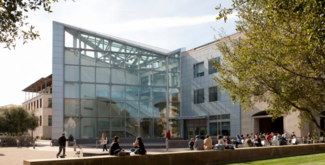
From Optimization to Sampling, with a touch of Schrödinger Bridge
Packard 202
Details available at ISL Colloquium
Abstract: This talk will follow a bit along our personal journey navigating this body of research and we hope to share a few evolving developments.
Intrigued by the connection to optimization through a gradient flow interpretation of the PDE formulation of the Langevin dynamics, we were led to study more general sampling algorithms that one may design using this perspective.
This also motivated us to investigate the mixing behavior of existing MCMC algorithms such as Hamiltonian Monte Carlo, which is the workhorse behind the widely-popular Stan software and considered state of the art in practice for sampling from un-normalized densities.
All these are followed by the realization that modern machine learning advancements in optimal transport, stochastic control and diffusion generative modeling (that can be powered by neural networks) offer competitive alternatives to these more traditional MCMC methods, which is quite exciting to contemplate on, as we hope to convey.
The role of physics in these matters, is, to us, fascinating.
Bio: Qijia Jiang is a postdoctoral researcher at the Berkeley Lab, working on various computational, statistical and signal processing-related problems. She got her PhD from Stanford EE earlier in 2021 under Emmanuel Candès and looks forward to be back for the talk.